Iran Lawmaker Says Mossad Infiltrators Helped In Killing Of Guards
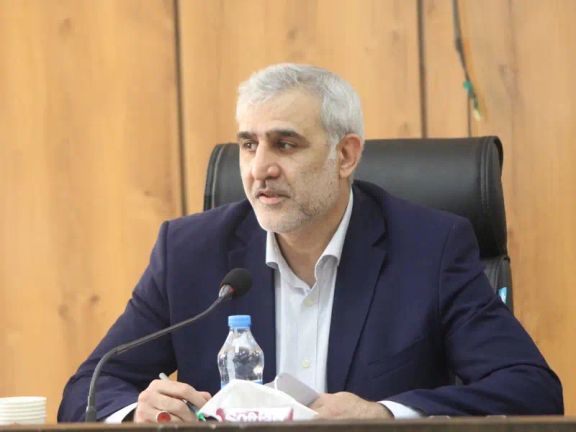
A member of Iran's National Security Commission claims that Israeli spy agency Mossad infiltrators played a role in the killing of five Quds Force members in Syria.

A member of Iran's National Security Commission claims that Israeli spy agency Mossad infiltrators played a role in the killing of five Quds Force members in Syria.
Morteza Mahmoudvand stated, "According to our information, the incident undoubtedly involved infiltration and intelligence operations," pointing to Mossad, the Israeli security service, as specialists in such activities, suggesting their likely involvement in the assassinations of the chiefs from the IRGC's foreign wing, the Quds Force.
“The Israeli security service known as Mossad specializes in that exactly – undoubtedly, it has been at the forefront of infiltration and intelligence work.”
Some Iranian critics of the regime have also mocked the IRGC for having been infiltrated by Israel.
Syria's state-run SANA news agency attributed the Saturday attack in Damascus to Israel. The Islamic Revolutionary Guard Corps (IRGC) confirmed the loss of four members in the airstrikes, with a fifth succumbing to injuries later. Subsequently, Iran-backed militant groups in Iraq launched rockets at Assad Air Base in Anbar province, where US forces are stationed.
In response to the killings, Iranian Parliamentary Speaker Mohamad Bagher Ghalibaf warned of "severe punishment" for Israel. Iran has consistently threatened Israel with severe consequences for its alleged role in the deaths of IRGC commanders and forces in the region though Tehran has refrained from direct attacks.
In December, Razi Mousavi, also known as Seyyed Razi, was killed in an Israeli airstrike near Damascus. He was responsible for overseeing logistics and military coordination for the Islamic Revolutionary Guard Corps (IRGC) in Syria. His role included acquiring weapons and coordinating activities for Iran-backed forces in both Syria and Lebanon.
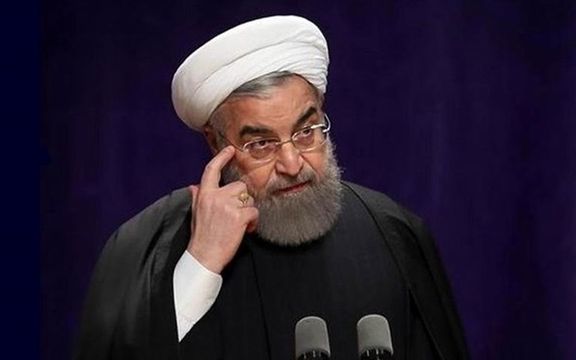
Iranian hardliners controlling the candidate vetting process for the March 1 elections, have rejected the candidacy of former President Hassan Rouhani, local media report.
Rouhani had registered and was eager to run for a seat on the Experts Assembly that will take place along with parliamentary elections in five weeks. The Assembly has the constitutional duty to select Iran’s next Supreme Leader after Ali Khamenei’s death.
Rouhani in November had stressed the importance of the election, considering political uncertainties in the event of Khamenei’s absence.
The interior ministry and the Guardian Council, both in charge of vetting candidates, have rejected hundreds of non-hardliners for the March vote, repeating the same tactic as was employed in the 2020 parliamentary and the 2021 presidential elections. As a result, the outgoing parliament is controlled by ultraconservatives, who also dominate President Ebrahim Raisi’s administration.
Rouhani's rejection by Khamenei loyalists has now pushed all former Iranian presidents into political isolation.
Those rejected are all regime insiders and not opponents, who could never be allowed to run in an election. Many are former high-ranking officials or lawmakers.
Relatively independent media outlets, commentators and many politicians agree that turnout in the elections will be extremely low, as voters have lost trust that any election in the Islamic Republic can improve their deteriorating economic condition or offer more freedoms. The widespread candidate rejections also diminish any chance that government efforts to entice the population to vote can bear any results.
The manipulation of elections take place even though hardliners know a low turnout can further erode the regime’s legitimacy, damaged by economic crisis and repeated nationwide protests.
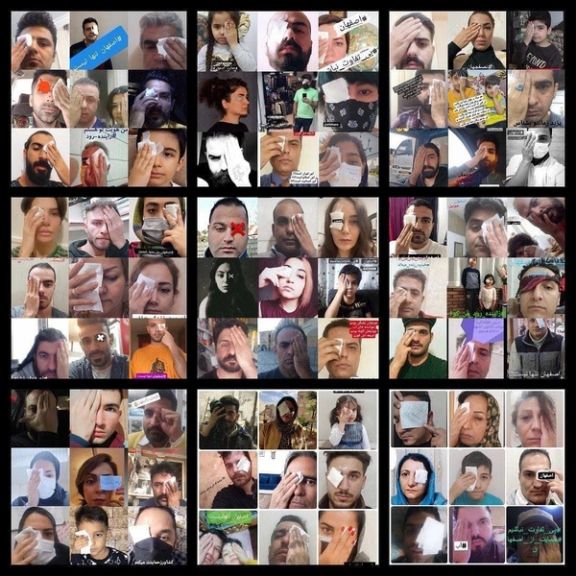
Two Iranian protesters who suffered eye injuries during the 2022-2023 protests have been arrested as the regime cracks down further on dissidents.
Amir Shahvelayati and Matin Hassani were apprehended on Tuesday in Tehran and Bukan, West Azarbaijan province, respectively.
Human rights organizations Hengaw and HRANA reported that Amir Shahvelayati was summoned to the Evin courthouse on Tuesday, detained, and subsequently transferred to Evin Prison. The charges against him include "propaganda against the system," "membership in a subversive group," and "actions against security."
Shahvelayati sustained eye damage from a pellet shot during the Woman Life Freedom protests. First arrested last May, he was released on bail after two months until the latest arrest.
Matin Hassani, another victim of eye injuries, was reportedly arrested in Bukan on the same day. Hassani lost vision in one eye due to a pellet gunshot during protests following the death in custody of Mahsa Amini.
Recent weeks saw him sharing images of his visits to the graves of protest victims. His arrest coincided with the publication of images showing him at the gravesite of Yalda Aghafazli, a victim of the Woman Life Freedom movement.
Despite the arrests, the judicial authorities of the Islamic Republic have not issued any official comments on the situation.
In September, the Iran Human Rights Organization (IHR) disclosed the identities of numerous individuals who suffered eye injuries when Iranian security forces fired at protesters. The IHR emphasized in its report that security forces targeted protesters' eyes, particularly women, in a "systematic and deliberate" manner with alarming precision.
The report documented 138 cases of eye injuries, with 43 individuals choosing anonymity while providing evidence. The remaining 95 cases, including 8 children under 18, were extensively detailed in the report.
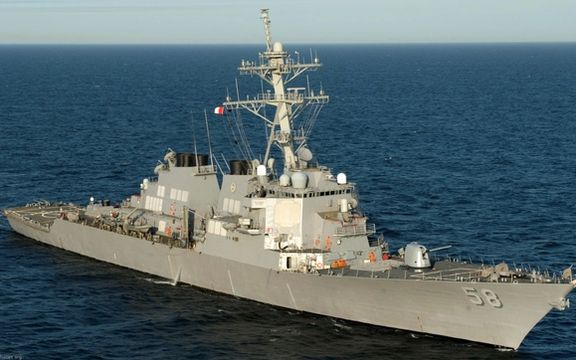
The United States has reportedly called on China to use its influence with Iran to restrain the Houthi forces, who have been attacking commercial ships in the Red Sea.
However, there have been limited signs of cooperation from Beijing, according to US officials cited in a Financial Times report.
Over the past three months, US officials have consistently raised concerns about these attacks with senior Chinese officials. White House National Security Adviser Jake Sullivan and Deputy National Security Adviser Jon Finer addressed the matter during recent meetings with Liu Jianchao, who heads China's Communist Party's International Liaison Department.
US Secretary of State Antony Blinken also discussed the issue with his Chinese counterpart. Despite these discussions, US officials believe that China has not exerted significant pressure on Iran to curb the Houthi rebels, aside from issuing a mild statement on the subject last week.
Houthis began launching missiles and drones at commercial vessels passing through the strategic Red Sea carrying cargo between Asia and Europe. The attacks began after Iran's Supreme Leader Ali Khamenei called for a blockade of Israel, after war broke out in Gaza.
Earlier, the US military conducted strikes in Yemen, destroying two Houthi anti-ship missiles aimed at the Red Sea and ready for launch. On another occasion, US and British forces conducted strikes targeting a Houthi underground storage site, as well as missile and surveillance capabilities used by the Iran-aligned group for attacks on Red Sea shipping.
The Houthi attacks in the Red Sea have disrupted global shipping and raised concerns about global inflation. They have also heightened worries that the fallout from the Israel-Hamas conflict could further destabilize the Middle East.
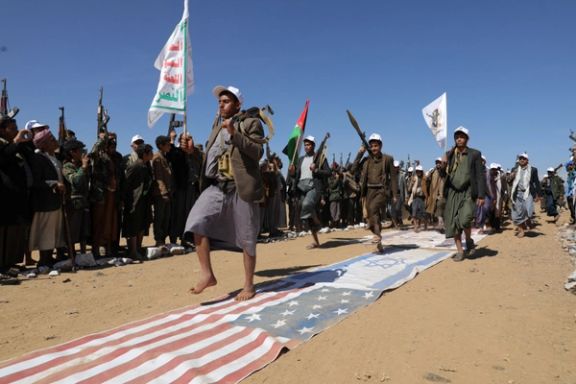
The Pentagon carried out strikes in Iraq against Iran-backed militia on Tuesday, the Pentagon said, after a weekend attack on an Iraqi air base that wounded US forces.
The US military also carried out more strikes in Yemen early on Wednesday, destroying two Houthi anti-ship missiles that were aimed at the Red Sea and were preparing to launch, the US military said in a statement.
The US strikes, which took place at roughly 2:30 a.m. (2330 GMT), are the latest against the Iran-backed group over its targeting of Red Sea shipping, and followed a larger round of strikes a day earlier.
US troops in Iraq and Syria have been attacked about 150 times by Iran-aligned militants since the Israel-Gaza war started in October, creating pressure on President Joe Biden to respond militarily, despite political sensitivities in Baghdad.
On Saturday, four US personnel suffered traumatic brain injuries after Iraq's Ain al-Asad air base was hit by multiple ballistic missiles and rockets fired by Iranian-backed militants from inside Iraq.
"US military forces conducted necessary and proportionate strikes on three facilities used by the Iranian-backed Kataib Hezbollah militia group and other Iran-affiliated groups in Iraq," US Defense Secretary Lloyd Austin said in a statement.
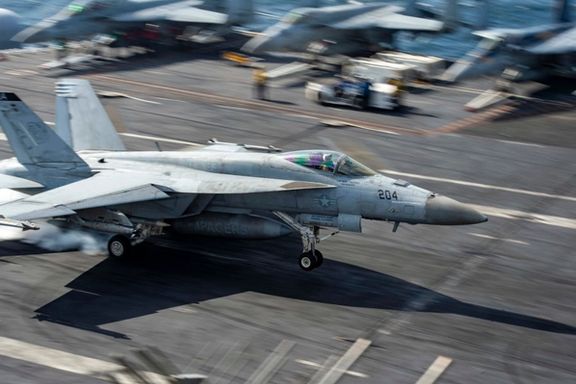
"These precision strikes are in direct response to a series of escalatory attacks against US and Coalition personnel in Iraq and Syria by Iranian-sponsored militias," Austin added.
US Central Command, which carries out operations in the Middle East, said the strikes in three locations targeted Kataib Hezbollah "headquarters, storage, and training locations for rocket, missile" and drone capabilities.
In Iraq, a medical source and a militant source said the US strikes killed at least two militants and that four other people were wounded.
Kataib Hezbollah military spokesperson Jaafar al-Husseini said in a post on X that the group would continue to target "enemy bases" until the end of Israel's seige in Gaza and singled out US support for Israel's campaign.
The Iranian regime has avoided direct military involvement in the Gaza war, preferring not to escalate the conflict to a confrontation with Israel and the US. However, its proxy forces in the Middle East have been widely attacking US and Israeli interests, as well as international shipping in the Red Sea.
The US has 900 troops in Syria and 2,500 in Iraq, advising and assisting local forces to prevent a resurgence of Islamic State, which in 2014 seized large parts of both countries before being defeated.
Iraqi Prime Minister Mohammed Shia al-Sudani's office announced moves to evict US forces following a US drone strike in Baghdad earlier this month that was condemned by the government. The Pentagon said that strike killed a militia leader responsible for recent attacks on US personnel.
Sudani has limited control over some Iran-backed factions, whose support he needed to win power a year ago and who now form a powerful bloc in his governing coalition.
The Pentagon has said it has not been formally notified of any plans to end the US troop presence in the country, and says its troops are deployed to Iraq at the invitation of the government in Baghdad.
Following the US strike, Abo Alaa al-Walai, a militia commander sanctioned by the US last year for involvement in attacks on US forces, said Iran-backed Iraqi militias operating under the banner of the Islamic Resistance in Iraq should expand operations by "enforcing a blockade on Zionist maritime navigation in the Mediterranean Sea."
Iran’s ruler Ali Khamenei has been calling on Muslim countries to blockade Israel since early November.
Reporting by Reuters
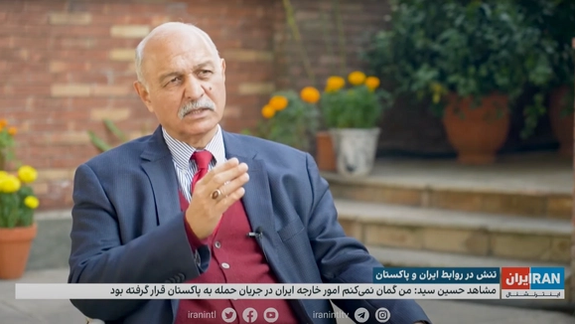
Pakistani lawmaker Mushahid Hussain Syed has suggested Iran’s Revolutionary Guards’ cross-border airstrikes might have occurred without government knowledge.
Senator Hussain Syed, head of Pakistan's Defense Committee, told Iran International that the attack seemed like a “deep state operation” to save face following a series of recent security breaches, the latest of which was twin blasts on the death anniversary of IRGC-Quds Force former commander Qasem Soleimani in Kerman.
“There were issues of security, and the election is coming up in Iran. I think this was an Iranian deep state operation,” he said, explaining that “Iran has multiple centers of power.”
Hussain noted that Iran's Quds Force, which is in charge of operations overseas, has historically played a dominant role in Iran's foreign policy, particularly in countries like Afghanistan, Iraq, Syria, Lebanon, and Yemen, pointing the finger at the body which also manages Iran's regional proxies. “A lot of foreign policy initiatives are not decided by Iran’s Ministry of Foreign Affairs or even by the president perhaps,” he said. “It was their own operation.”
However, it is unlikely that such an operation was not given the green light by the country's Supreme Leader who has the ultimate control of Iran's proxies abroad. “I don't think the Iranian Foreign Minister knew about it, because two hours before the operation he had a very cordial and pleasant meeting with our prime minister in Davos,” he said, suggesting that the operation was kept to a closed circle.
"It was an Iranian deep state operation by their Revolutionary Guards, who operate as a state within a state, and they are very powerful,” he underlined, saying that “Qasem Soleimani was the most powerful man in Iran after the Supreme Leader.” Countries such as the UK have called Iran its number one threat after tens of attacks on its soil have been foiled, coordinated by Iran's Quds Forces and Ministry of Intelligence.
Hussain also noted the timing of Iran's attack on its neighbor, amid heightening regional tensions. He suggested that Iran flexing its military might could be Iran's desire to send a message to Israel, the US and the West that “if you want to attack us, bomb us, we are ready for a military strike.”
He said, “I think it was pressure on Iran after the al-Aqsa Flood operation,” referring to Hamas invasion of Israel on October 7 that was the onset of the escalating Middle East conflict.
By attacking targets in Pakistan, Iraq and Syria within 24 hours, Iran wanted to send a message to the West that it has “the capability, the willingness and the intention” to act militarily if the need arises while its proxies wreak havoc across the region, including Yemen's Houthis blockading the Red Sea. Iran continues to deny its involvement in any of its proxies missions from Hamas in Gaza to Hezbollah in Lebanon.
Iran misjudged the response from Pakistan and Iraq which, following the attacks, both not only recalled ambassadors but lodged legal action at the UN Security Council. Iran also did not account for Pakistan’s retaliatory airstrikes.
Through what Hussain called "stupid action", "Iran has brought Iraq back into the American lap ... lost the goodwill in Pakistan and the region... and also showed that Iran’s military power has its limits.”